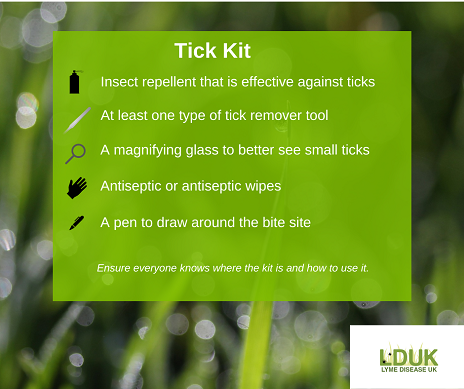Tick-borne Encephalitis Detection in England
Share article:
Article by:
UK Health Security Agency, Gov.uk, British Deer Society
Tick-borne encephalitis detection in England
A new risk assessment has been published this week by a multi-agency cross-government committee, highlighting that tick-borne encephalitis is now likely to be present in England.
The risk assessment is based on both human cases and the detection of the virus in ticks in several areas of the country. It is important to stress the risk to the general public in the UK remains very low.
Dr Meera Chand, Deputy Director at UKHSA, said:
“Our surveillance suggests that tick-borne encephalitis virus is very uncommon in the UK and that the risk to the general population is very low. Ticks also carry various other infections, including Lyme disease, so take steps to reduce your chances of being bitten when outdoors in areas where ticks thrive, such as moorlands and woodlands, and remember to check for ticks and remove them promptly.”
Following the first confirmed human case of tick-borne encephalitis in the UK, the BDS welcomes the advice of the UK Health Security Agency about the risk to people of contracting illness from tick bites. BDS members participated in Public Health England’s 2018 deer serosurveillance study, investigating the presence of tick-borne viruses in the UK, which resulted in this finding.
Ticks are common in the countryside and can carry several bacterial and viral infections that may affect people, including Lyme disease, which is more well-recognised than tick-borne encephalitis virus (TBEV) in the UK. TBEV appears to be a recent arrival in the UK and the risk of people contracting the infection is considered to be very low. Ticks can be carried by many mammals and birds and as such, being tick aware and taking precautions, remains the best way to protect yourself from tick borne diseases, including Lyme disease.
When you are out in the countryside make sure to carry a tick kit (see below) to help protect from ticks.

By being a BDS member, can help us educate and inspire more people about deer across the UK and beyond.












